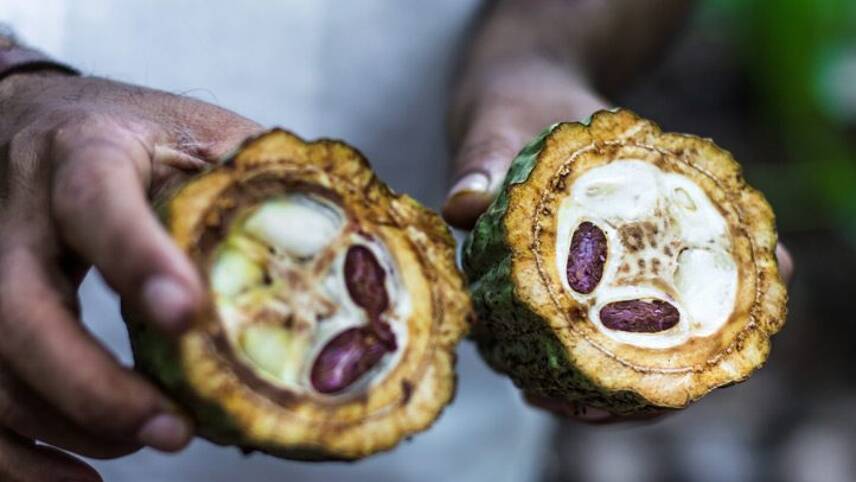Register for free and continue reading
Join our growing army of changemakers and get unlimited access to our premium content

The overall Cocoa Life sourcing programme aims to eventually reach more than 200
Mondelēz International’s Cocoa Life initiative was originally launched in 2012 with a $400m commitment over a decade to build a cocoa supply chain, working directly with farmers and communities on skills, education, access to resources such as planting materials and crop protection.
The programme builds on a commitment to the Cocoa & Forests Initiative (CFI), forming a 2022 target to protect and restore forests in cocoa-growing areas. The 2022 targets cover Mondelēz International’s two largest cocoa-sourcing countries – Ghana and Côte d’Ivoire – but also accounts for its third-largest sourcing region Indonesia.
Under Cocoa Life, the company has mapped 100% of the farms registered with the programme in 2018 in Ghana, Cote d’Ivoire and Indonesia and is currently mapping farms that were registered last year.
Over the last two years, Cocoa Life has trained more than 134,000 farmers across the three countries on agricultural practices that increase yields while protecting the environment against things like deforestation. More than 60,000 farmers have participated in financial training to give them access to more financial services to further improve farming practices.
Mondelēz International’s associate director of Cocoa Life operations Cedric van Cutsem said: “We believe conserving the land and forests is a promise to future generations, and our commitment to sustainably-produced cocoa reflects our purpose to empower people to snack right, supported by Cocoa Life’s commitment to make cocoa right.
“Looking ahead, we believe that partnership and sector-wide collaboration is the key to tackling climate change. Both the public and private sector have a shared responsibility to deliver on commitments they have made. Now we must work together to understand how to achieve our goals faster.”
Farming practices
The programme has been expanded to increase in the number of farmers and communities it supports across six cocoa origin countries: Ghana, Côte d’Ivoire, Indonesia, Dominican Republic, India and Brazil.
The overall Cocoa Life sourcing programme aims to eventually reach more than 200,000 farmers across six countries and benefit more than a million people by 2022.
Cocoa traders who sell to Mars, Nestlé, Mondelez and other big brands buy beans grown illegally inside protected areas in Côte d’Ivoire, where rainforest cover has been reduced by more than 80% since 1960.
Other milestones reached in 2019 include launching the programme’s first tree registration app for farmers in Ghana that empowers farmers to generate revenue through yields and tree planting and offer compensation for trees destroyed by timber merchants.
The programme has tested a deforestation risk assessment project in Côte d’Ivoire reaching 125,924 hectares of forests covered in the assessment by 2019. This programme will be rolled out to other countries over the next couple of years.
The firm has also pledged to map all farms covered by its sustainability scheme using satellite technology, as it strives to eliminate deforestation from its key sourcing regions. The forest conservation efforts of more than 120,000 farmers will be monitored under the scheme.
The news follows other associated plans, such as Mondelez’s female empowerment programme, which was first rolled out in Ghana and the Ivory Coast in 2014, and will now be expanded to Indonesia and the Dominican Republic. It aims to empower women from more than 1,000 communities across areas such as farming, youth, community, livelihoods and the environment.
Cocoa Life is also linked to the company’s science-based target to reduce absolute end-to-end greenhouse gas emissions by 10% by 2025, compared to 2018.
Earlier this week, Mondelēz International joined two major collaborative initiatives to phase-out single-use plastics from its packaging.
Matt Mace


Please login or Register to leave a comment.